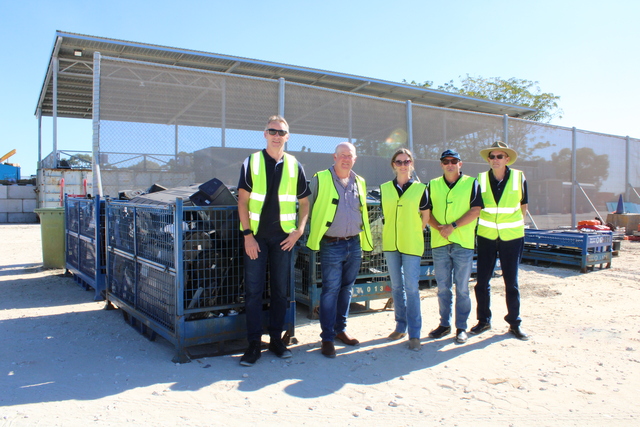On World Environment Day, the Town of Port Hedland joined forces with BHP Billiton and the Water Corporation, to present a number of informative and fun activities to mark the event.
Activities focused on interactive information and display stalls at Council’s Civic Centre Gardens for school children and the general public. Activities included a ‘What is in your water?’ demonstration, an interpretive coastal walk, Aboriginal story telling, bush tucker demonstration, home and community tips on improving the environment and using water wisely, propagation of native plants, eco-friendly food and wares, and a sausage sizzle.
Considered one of the most important events on the environment calendar, World Environment Day is celebrated each year in over 100 countries. The occasion serves to inspire government and community groups to undertake a variety of activities, aimed at renewing their commitment to the care and protection of the environment.
This year’s event carried the theme, ‘Water – 2 Billion People are Dying for It’. The slogan echoes one of the most pressing environmental issues facing the planet and its six billion people. The latest Global Environment Outlook, GEO-3, estimated that more than half of the people in the world could be living in severely water stressed areas by 2032.
“As well as this being an awareness raising event to draw attention to environmental issues prevalent in the Pilbara, World Environment Day was also used to promote the ‘Bag Yourself a Better Environment’ campaign against plastic shopping bags,” said Deputy Mayor, Bob Neville.
Council is making a big effort to reduce plastic bag use, and encouraging residents to use alternatives. Through helpful sponsorship, the Town of Port Hedland organised an awareness raising calico bag drop through the local newspaper.
The ‘Bag Yourself a Better Environment’ campaign flows from the decision last year by Council to be a signatory to the National Packaging Covenant. In Australia, 6.9 billion plastic shopping bags are used annually and most end up littering streets, oceans, beaches, parks and waterways, or dumped in landfill. Plastic bags don’t break down in the environment and can entangle and harm marine life and animals. Over 100,000 animals and birds die every year as a result of plastic bag litter, including turtles which accidentally ingest them.







